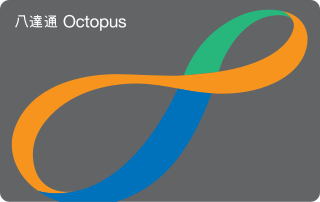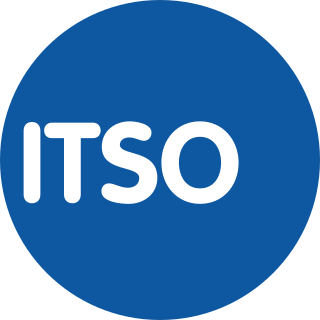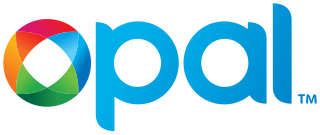Related Research Articles

The Octopus card is a reusable contactless stored value smart card for making electronic payments in online or offline systems in Hong Kong. Launched in September 1997 to collect fares for the territory's mass transit system, it has grown into a widely used system for transport and other retail transactions in Hong Kong. It is also used for purposes such as recording school attendance and permitting building access. The cards are used by 98 percent of the population of Hong Kong aged 15 to 64 and the system handles more than 15 million transactions, worth over HK$220 million, every day.

London Buses is the subsidiary of Transport for London (TfL) that manages most bus services in London, England. It was formed following the Greater London Authority Act 1999 that transferred control of London Regional Transport (LRT) bus services to TfL, controlled by the Mayor of London.

Storstockholms Lokaltrafik, or more formally Aktiebolaget Storstockholms Lokaltrafik, is the organisation running all of the land based public transport systems in Stockholm County. It was previously known as Stockholms Lokaltrafik and is commonly referred to as SL.
SmartRider is the contactless electronic ticketing system of the Public Transport Authority of Western Australia. The system uses RFID smartcard technology to process public transport fares across public bus, train and ferry services.

The Presto card is a contactless smart card automated fare collection system used on participating public transit systems in the province of Ontario, Canada, specifically in Greater Toronto, Hamilton, and Ottawa. Presto card readers were implemented on a trial basis from 25 June 2007 to 30 September 2008. Full implementation began in November 2009 and it was rolled out across rapid transit stations, railway stations, bus stops and terminals, and transit vehicles on eleven different transit systems.

ITSO Ltd is a non-profit membership organisation assisting standardisation of public transport ticketing in the United Kingdom.

Because the rail operators are government-assisted profit-based corporations, fares and ticketing on Singapore's Mass Rapid Transit (MRT) system are currently aimed at least in breaking even to at least compensate for their costs of running the system. The rail operators collect fares by selling electronic tickets capable of storing data, the price of which is calculated based on the distance between the start and destination stations. These prices increase in fixed stages for standard non-concessionary travel. From the information that was earlier written in these tickets, it is possible to increase the fare according to increments based on approximate distances between stations.
Translink is the public transit agency for Queensland, and is part of the Department of Transport and Main Roads. Translink was first introduced by the Queensland Government in June 2003 to orchestrate bus, ferry, rail and light rail services. They work with Brisbane Airtrain, Transport for Brisbane, RiverCity Ferries, Queensland Rail and other operators to provide services. Translink operates an integrated ticketing system across Queensland and the go card system to allow the use of one ticket on multiple services in South East Queensland.

Myki, stylised as myki, is a reloadable credit card-sized contactless smart card ticketing system used for electronic payment of fares on most public transport services in Melbourne and regional Victoria, Australia. Myki replaced the Metcard ticketing system and became fully operational at the end of 2012.
Public transport ticketing in New South Wales, Australia operated using magnetic-stripe technology between 1989 and 2016. This ticketing system, known variously as the Automated fare collection system, STATS and, from 2010, MyZone, was progressively replaced by a contactless smart card called Opal between 2012 and 2016.

Transperth is the public transport system for Perth and surrounding areas in Western Australia. It is managed by the Public Transport Authority (PTA), a state government organisation, and consists of train, bus and ferry services. Bus operations are contracted out to Swan Transit, Path Transit and Transdev. Ferry operations are contracted out to Captain Cook Cruises. Train operations are done by the PTA through their Transperth Train Operations division.

A transit pass or travel card, often referred to as a bus pass or train pass etc., is a ticket that allows a passenger of the service to take either a certain number of pre-purchased trips or unlimited trips within a fixed period of time.
The go card is an electronic smartcard ticketing system developed by Cubic Corporation, which is currently used on the Translink public transport network in South East Queensland, Australia. To use the go card, users hold the card less than 10 cm away from the reader to "touch on" before starting a journey, and must do the same to "touch off" the service at the end of the journey. The cost of each journey is deducted from the go card balance.
Integrated ticketing allows a person to make a journey that involves transfers within or between different transport modes with a single ticket that is valid for the complete journey, modes being buses, trains, subways, ferries, etc. The purpose of integrated ticketing is to encourage people to use public transport by simplifying switching between transport modes and by increasing the efficiency of the services.

The AT HOP card is an electronic fare payment card that was released in two versions on Auckland public transport services, beginning in May 2011. The smart card roll out was the first phase in the introduction of an integrated ticketing and fares system that was rolled out across the region.

Opal is a contactless smartcard fare collection system for public transport services in the greater Sydney area and most other urban areas of New South Wales, Australia. Operation of the Opal system is managed by the New South Wales Government's transport authority, Transport for NSW. First launched in late 2012, Opal is valid on Transport for NSW's metro, train, bus, ferry and light rail services that operate in Sydney and the neighbouring Central Coast, Hunter Region, Blue Mountains, Illawarra and Southern Highlands areas. Opal equipment was designed from the start to support a variety of cards, but launched with the captive Opal cards.

Contactless smartcards are being progressively introduced as an alternative option to paper ticketing on the National Rail system of Great Britain. Tickets for use on National Rail services can be loaded onto any ITSO card.

The TFI Leap Card is a contactless smart card for automated fare collection overseen by Transport for Ireland (TFI). It was introduced in the Greater Dublin area in 2011 for Luas, DART, Iarnród Éireann and Dublin Bus, but acceptance has significantly expanded, and it is now accepted in cities nationwide and on some longer distance commuter routes. Initially, Leap Cards offered only a pre-paid electronic wallet system for single-trip fares; since May 2014, it has also been possible to load it with weekly, monthly and annual subscriptions. In September 2017, there were over 2.5 million Leap Card users according to the National Transport Authority. The Leap Card is the result of many years' work by the Railway Procurement Agency and the National Transport Authority as part of the rollout of an integrated ticketing scheme for public transport in Dublin city. Fares are generally discounted compared to cash prices, and integrated ticketing is offered in the Dublin area via a flat fare system across all modes of transport. The minimum top-up for the card is currently €5, and it can be topped up via iPhone/Android App, at LUAS or DART ticketing machines, and in convenience stores offering Payzone services.

More Card is a rechargeable smart card for paying transportation fares in public transport systems in India. Tipped as a nationwide interoperable transport card, the card aims to be a single point of transaction, applicable in state buses, Metro and even parking. The card was launched in 2012 in Delhi, initially acting as a common card for the Delhi Metro and its feeder buses.

The South Yorkshire Mayoral Combined Authority is the combined authority for South Yorkshire in England, with powers over transport, economic development and regeneration. It covers a total area of 3,484 km2 (1,345 sq mi) with a population of 1.8 million. The four metropolitan boroughs of South Yorkshire – Sheffield, Rotherham, Doncaster and Barnsley – are full members of the authority, while the Derbyshire Dales, North East Derbyshire, Chesterfield and Bolsover districts of Derbyshire, and the Bassetlaw district of Nottinghamshire, are non-constituent members.
References
- ↑ "Research Folder - Phase 6, Yorcard (2010)" (PDF). Archived from the original (PDF) on 2 December 2016. Retrieved 2 December 2016.